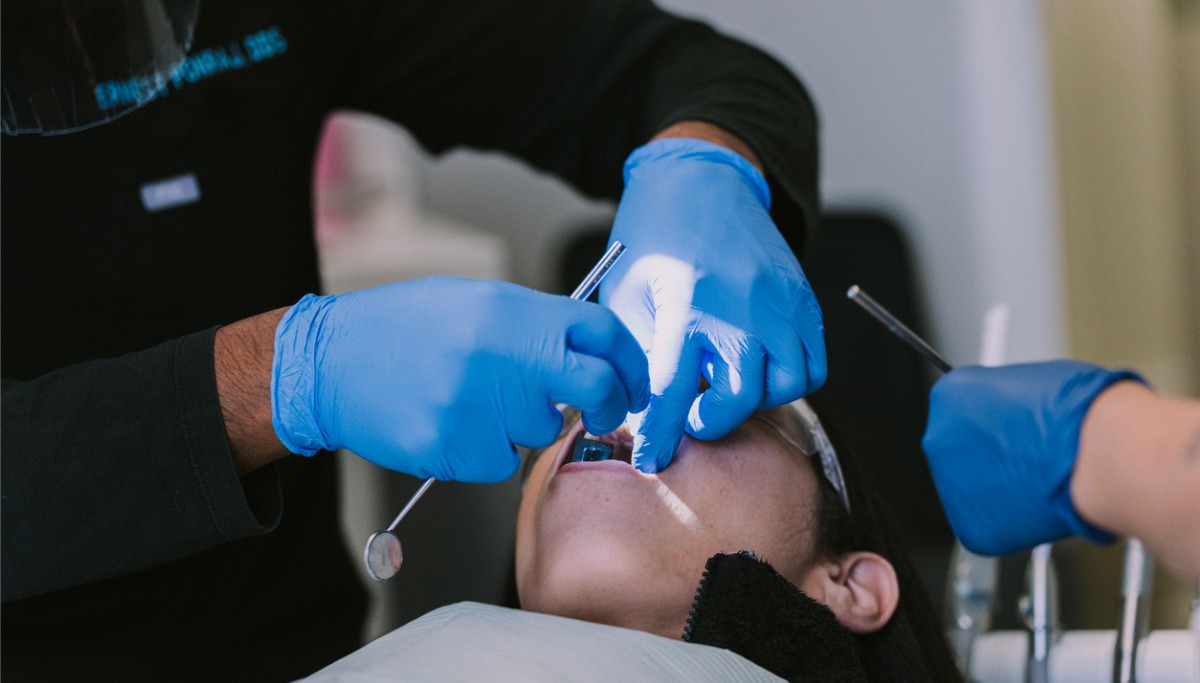What is a dental crown?
A dental crown (sometimes called a dental cap) is an artificial tooth-shaped cap that fits over a weakened, broken, or decayed tooth. It can be made of different materials including resin, metal, and porcelain.
What are dental crowns used for?
There are many reasons your dentist may recommend a dental crown. A crown can be used to:
- Help you chew without pain.
- Protect a cracked tooth.
- Strengthen a weak tooth.
- Restore a broken tooth.
- Cover a dental implant.
- Hold dental bridges in place.
- Shield a tooth after a root canal.
- Disguise a discolored or stained tooth.
Types of dental crowns
There are different types of dental crowns and alternatives to using them, depending on the situation and your oral health needs.
Dental crowns can be temporary or permanent.
- Temporary crowns are typically made of composite or acrylic materials and are usually used to protect your tooth while the permanent crown is created.
- Permanent crowns are bonded to your tooth and expected to last many years.
Permanent dental crowns can be made of different materials, including:
- Metal crowns (such as gold and titanium)
- Porcelain-fused-to-metal (PFM) crowns
- All-ceramic or all-porcelain crowns
Some dentist offices also offer same-day dental crowns, a ceramic permanent crown made the day of your appointment. In this case, the temporary crown and second appointment are unnecessary.
Depending on how much damage has been done to your tooth, a dental crown may not be right for you. Other options for tooth repair include:
- Dental onlays: These can be used if your tooth isn’t badly damaged. They are similar to crowns but do not cover as much of your tooth.
- Dental veneers: A thin layer of porcelain or other material bonded to the front of your tooth. Veneers are not an option for badly damaged teeth.
- Dental bridges: An artificial tooth (or teeth) held in place by dental crowns that have been placed on both sides of the space left by the missing tooth.
- Dentures: Removable dental appliances that fill in gaps made by missing teeth.
How much does a dental crown cost?
The cost for a dental crown can vary depending on the status of your teeth, gums, and oral health. For instance, problems such as gum disease may need to be treated before, or in addition to, placing your crown.
Other factors that can influence the cost are the specialty of the dentist performing the procedure and the type of crown that is used. If you have dental insurance, you may see considerable out-of-pocket cost savings by visiting an in-network provider for treatment.
Use Delta Dental’s cost estimator tool to research pricing for dental crowns near you.
How long does a dental crown procedure take?
A dental crown procedure usually takes place during two appointments.
The first appointment could generally take around 60 to 90 minutes. Your dentist will:
- Examine your tooth.
- Take X-rays of the tooth and the surrounding area.
- Prepare your tooth for the crown.
- Take an impression of your tooth.
- Give you a temporary crown to protect your teeth between visits.
The impression of your tooth is used to make your custom-fitting crown, a process that may take two to three weeks.
Once your crown is ready, it is time for the second appointment. This visit is generally shorter than the initial appointment. During this appointment your dentist will:
- Remove your temporary crown.
- Check the color, shape, and fit of your new crown.
- Permanently bond the new crown to your tooth.
What foods can I eat with a dental crown?
With a temporary or permanent crown, you will want to avoid foods that can damage or dislodge it. This includes ice, nuts, popcorn, and very sticky foods like caramel and toffee.
You may also notice temporary sensitivity to hot and cold foods, especially in the first few weeks after the procedure.
When does a dental crown need to be repaired or replaced?
On average, a dental crown will last around 10 to 15 years, but they can last closer to 30 years depending on the material used and how well you take care of it.
- Proper oral health will help protect the crown — brush twice per day with a fluoride toothpaste, floss daily, and attend your regularly scheduled dentist appointments.
- Teeth grinding, using your teeth as tools, or the development of other oral health problems may cause your crown to be replaced sooner.
If you notice wear and tear on your crown, or experience any pain or discomfort, visit your dentist to understand the cause.
Give your mouth the royal treatment
Dental crowns can help you protect your teeth and feel more comfortable with your appearance. If you think you may need a crown, you can find nearby dentists using our dentist finder tool.








